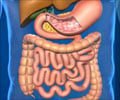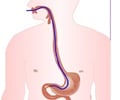- Cecil Medicine, 23rd Ed.
- Harrison's Principles of Internal Medicine, 17TH Edition
- 5 million in the USA 1987 (Digestive diseases in the United States: Epidemiology and Impact – NIH Publication No. 94-1447, US Government Printing Office, 1994
About
Irritable bowel syndrome (IBS) is characterized by chronic or recurrent abdominal pain or discomfort and a fluctuating disturbance in defecation. Bloating is not uncommon. IBS is defined as disorder of bowel function. IBS is not a life threatening condition. There is no permanent cure. Changes in the diet, medications and stress reduction are the key players in treatment.
Though IBS is defined as disorder of bowel function, current evidences suggest that a detectable structural abnormality may be present in some cases. The prevalence is greater in women. Though most of the patients are older than 60 years, IBS can affect all ages. IBS is not life threatening, and it never produces any cancer.
It is presumed that 15 percent of adults in USA suffer from IBS and this rate is consistent with Asia and Africa as well though the rate maybe lower in countries like India and Sri Lanka. This means approx 1 in 54 or 1.84% or 5 million people in USA have IBS.

An individual has a 30% lifetime risk of suffering from IBS. Psychological factors maybe the major cause of this chronic condition and in one of the studies it was found that at 5 years follow-up only 5% of subjects with IBS were completely cured of all their symptoms.
Simple Tips to Control your IBS Symptoms:
- Get into the habit of drinking plenty of water
- Avoid food with high fat and show preference towards a healthy diet of different varieties
- Try smaller meals than larger ones – this may mean eating 5 to 6 meals instead of 2 to 3 in a day
- Try and keep yourself relaxed, maybe practise meditation. Generally try and avoid emotional upset and conflicts
- Avoid the regular use of laxatives. Regular usage will make you dependant on them and weaken your intestines


















